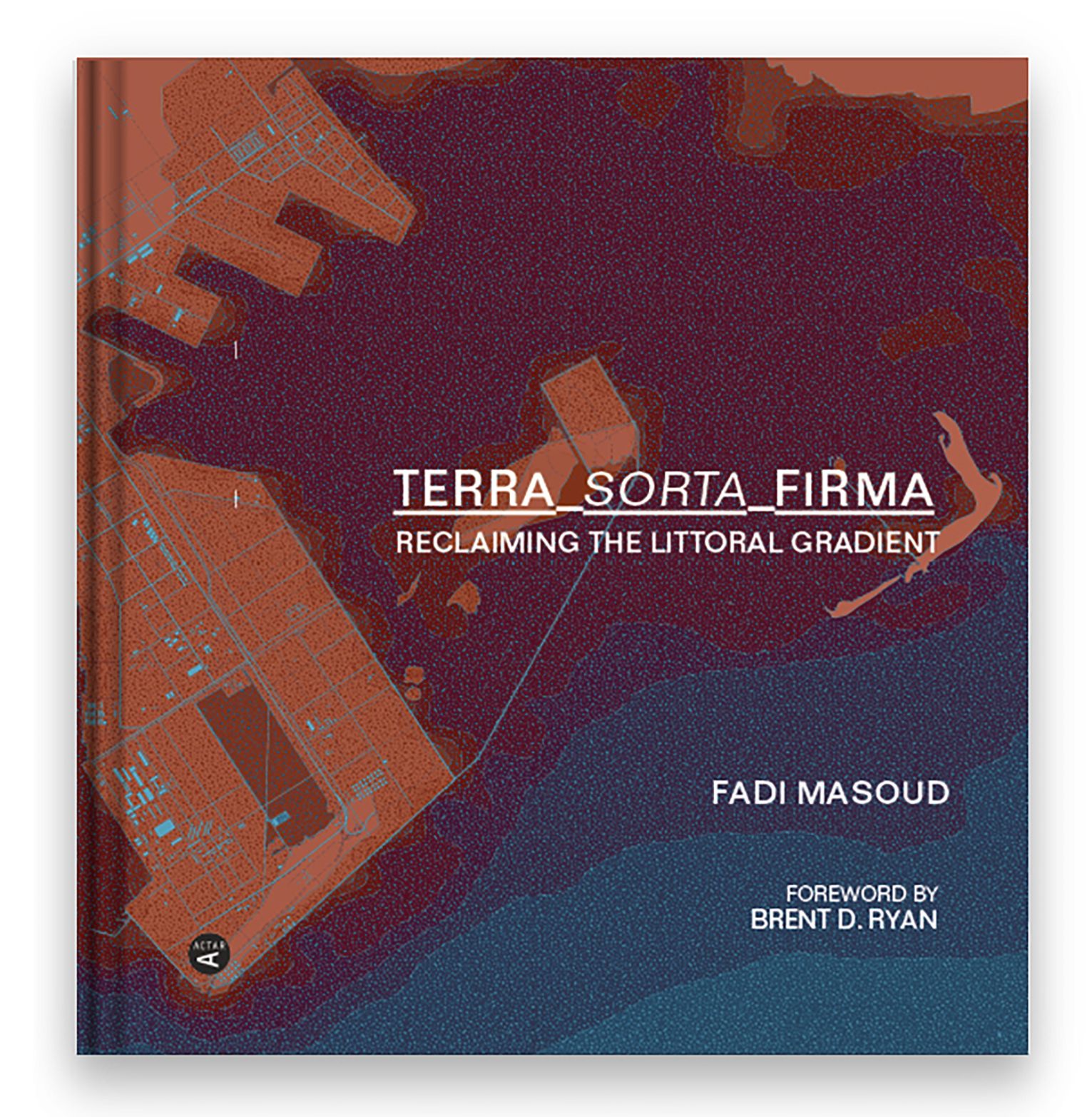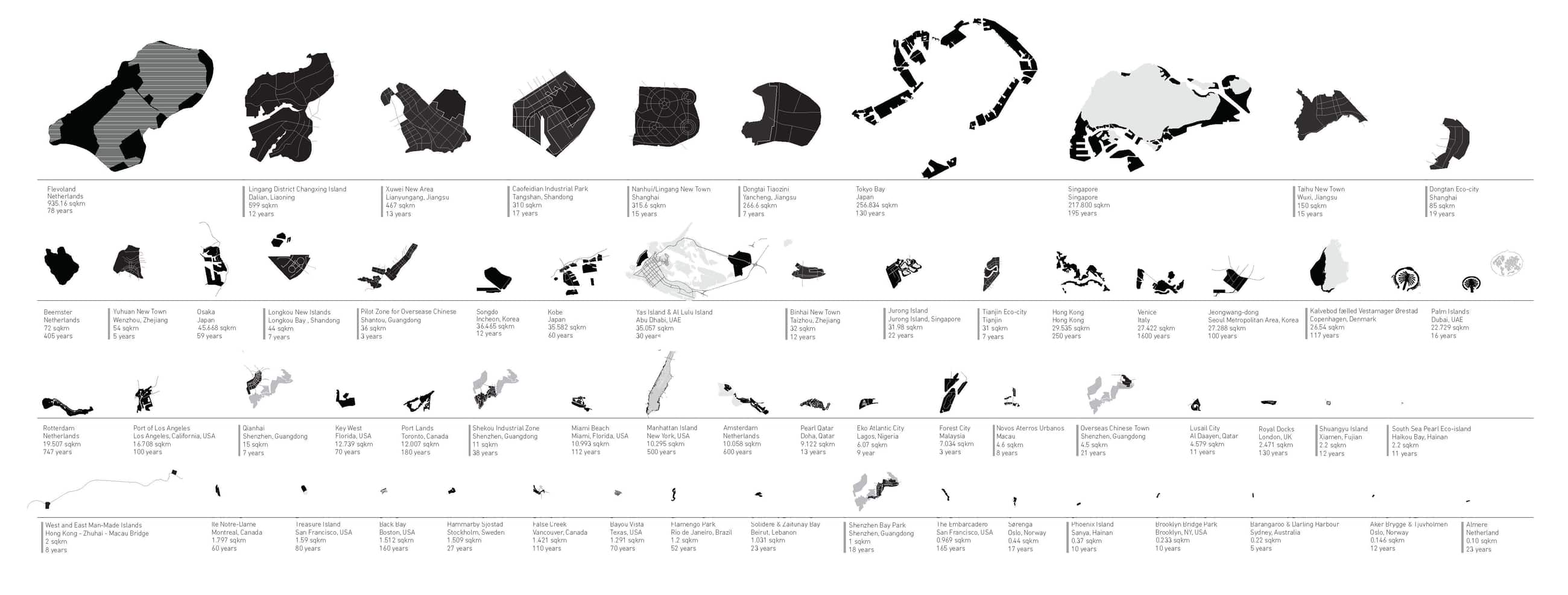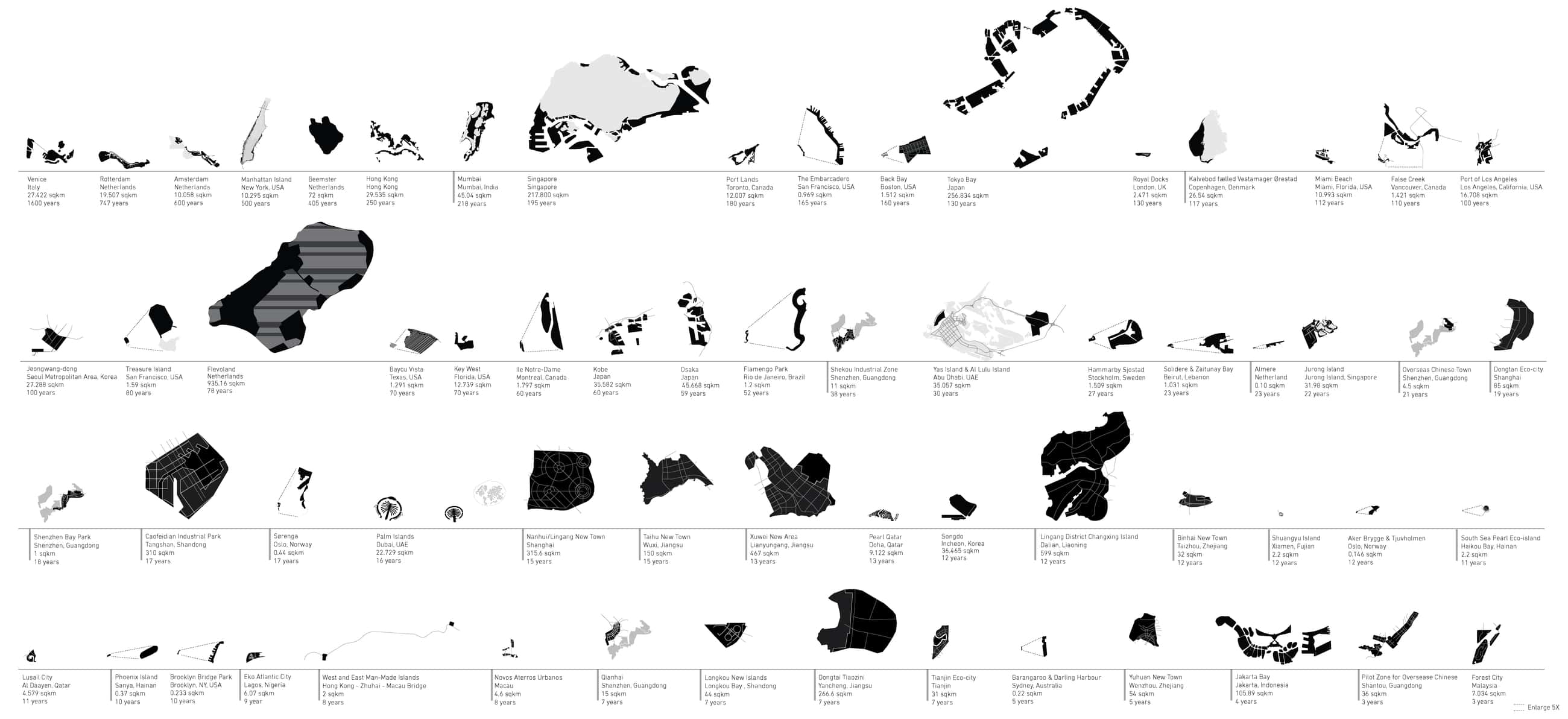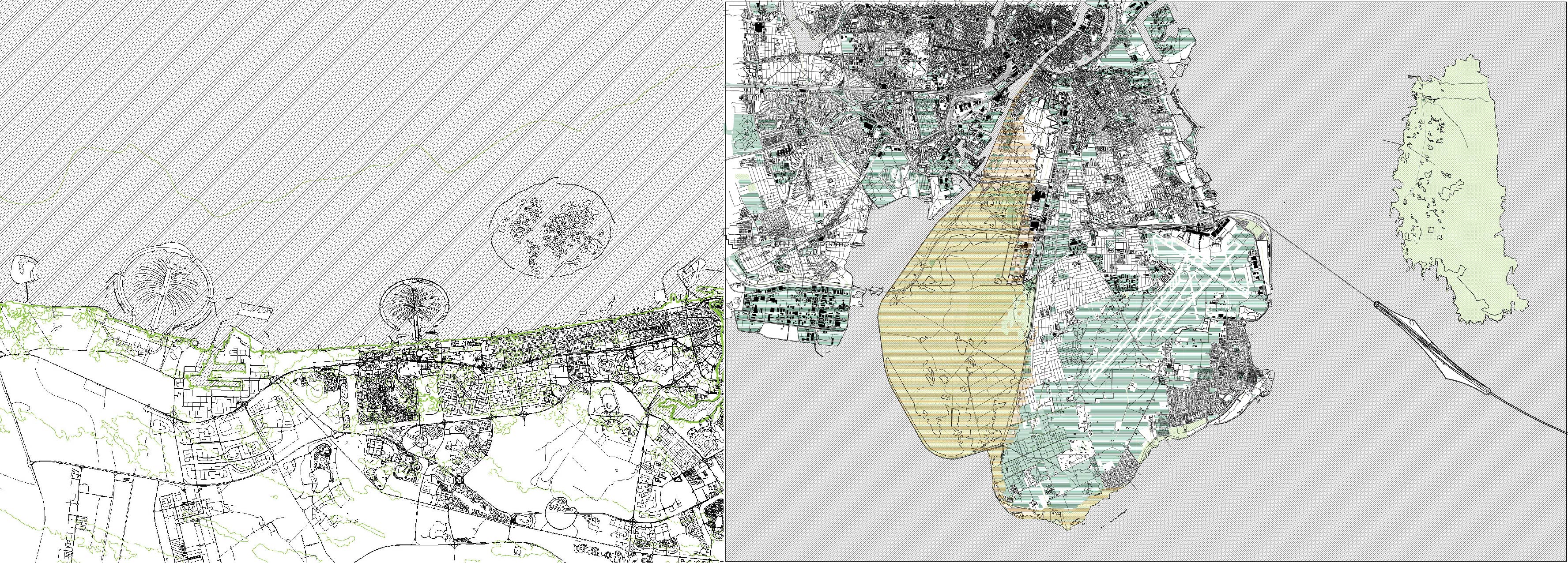
15.11.21 - Daniels Faculty celebrates the launch of the book Terra-Sorta-Firma: Reclaiming the Littoral Gradient
Fadi Masoud, Assistant Professor of Landscape Architecture and Urbanism and the Director of the Centre for Landscape Research at the Daniels Faculty recently published an edited volume and graphic atlas titled Terra-Sorta-Firma: Reclaiming the Littoral Gradient (Actar 2020).
The book documents the global extent of reclaimed coastal lands and provides a framework for comparison across varying geographies, cultures, and histories. For centuries, cities have grown and expanded onto previously saturated grounds; “reclaiming” land from estuaries, marshes, mangroves, and seabeds. While these artificial coastlines are sites of tremendous real estate, civic, and infrastructural investments, they are also the most vulnerable to the effects of climate change.
The book has four parts that question urbanism’s political, economic, and physical relationship to littoral zones, areas that are in a permanent state of flux. Part one highlights the extent of the global sand trade and the methods of coastal land reclamation. Part two documents over 50 case studies of urban districts built on reclaimed land under the categories of “Claiming Territory”, “Geologic Necessity”, “Flamboyant Real-Estate", “Landscaped Brownfields” and "Blue Collar - Brown Water”. The third part is a sub-atlas of Chinese case studies - the world’s largest consumer of sand and where the majority of contemporary land reclamation projects are taking place. The final part includes essays by various scholars who are seeking to define and redefine cities' relationship to their littoral zones and to reconsider the design and construction of land itself along gradients of inundation.
A selection of case studies from the book can be found in the interactive The Littoral Gradient Atlas which showcases a range of coastal urban developments built on reclaimed land and how they change over time.
The Daniels Faculty is celebrating the launch of the book with Fadi Masoud through an online book talk on Thursday, November 18 from 6:30 p.m. - 8 p.m. which will feature some of the book’s contributors: Luna Khirfan (University of Waterloo, School of Planning), Xiaoxuan Lu (The University of Hong Kong, Division of Landscape Architecture), Ben Mendelsohn (Portland State University, Film and Digital Culture), Michael T. Wilson (RAND Corporation), moderated by Brent D. Ryan (Massachusetts Institute of Technology).
Each contributor of the book represents the story of urban shoreline transformation in a different geography, from China to Singapore, and from Charlottetown to Lagos to Boston. Taken together, the event and the book aim to render visible the ubiquity and precarity of urban coastal reclamation in an age of increased environmental and economic indeterminacy.
Purchase Terra-Sorta-Firma via ACTAR Publishing. Use code TERRASORTAFIRMA15 for a 15% discount
Read research excerpts "The Littoral Gradient Atlas" and "Urban Districts on Reclaimed Land" on urbanNext.
Learn more about the Terra-Sorta-Firma project through the Centre for Landscape Research.
Explore the interactive Littoral Gradient Digital Atlas
About the book
Terra-Sorta-Firma: Developing the Littoral Gradient is a critical and interdisciplinary exploration of a continuously urbanizing and expanding littoral edge. The illustrated and edited volume documents urban waterfronts on “reclaimed” land and examines these pervasive environments through their dynamic past and uncertain future. For centuries, cities expanded onto previously saturated grounds; “reclaiming” land from estuaries, mangroves, and sea-beds. Today, the majority of global populations live along a continuously urbanizing and expanding coastline. While these artificial coastlines are sites of tremendous real-estate, civic, and infrastructural investments, they are also the most vulnerable to the effects of climate change. As such, this expansion's precarity is dramatically increased by the method in which it is constructed.
The book's four parts question urbanism’s political, economic, and physical relationship to land in a permanent state of flux. It challenges designers, developers, policymakers, engineers, and urbanists to reconsider the design and construction of land itself and to re-imagine this most fundamental of all infrastructures along gradients of inundation. The project collects 50+ global sites that have been mapped with similar cartographic conventions to illustrate the global magnitude of reclaimed coastal lands while essays by various scholars provide a framework for comparison across varying geographies, cultures, and histories.
About Fadi Masoud
Fadi Masoud is an assistant professor of Landscape Architecture and Urbanism at the University of Toronto and the director of the Centre for Landscape Research. His research, teaching, and design work focuses on the relationships between environmental systems, design, and instrumental planning policy tools. Masoud currently leads research projects on climate adaptive urban and landscape design, novel resilient urban codes, and the future of metropolitan public open space. Prior to joining the University of Toronto, Masoud held teaching and research appointments at the Massachusetts Institute of Technology and was trained and practiced as a planner, landscape architect, and urban designer. Masoud currently sits on Waterfront Toronto’s Design Review Panel and is a member of the City of Toronto’s Urban Flooding Working Group.
Media Inquiries:
Sara Elhawash at sara.elhawash@daniels.utoronto.ca




